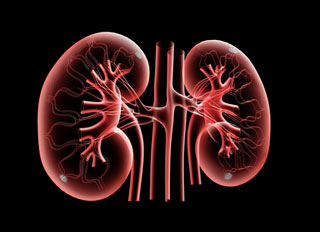 A study presented at the 2014 World Transplant Congress evaluated the safety and efficacy of CSL Behring’s C1 Inhibitor (C1-INH) concentrate in preventing antibody-mediated rejection following kidney transplants in highly sensitized patients. C1-INH is a human protein and an important inhibitor of the complement system.
A study presented at the 2014 World Transplant Congress evaluated the safety and efficacy of CSL Behring’s C1 Inhibitor (C1-INH) concentrate in preventing antibody-mediated rejection following kidney transplants in highly sensitized patients. C1-INH is a human protein and an important inhibitor of the complement system.The study shows that post-transplant treatment with C1-INH results in significant increases in the levels of complement components 3 and 4, suggesting that C1-INH inhibits activation of the complement system following transplantation. Antibody-mediated rejection is a major cause of kidney transplant failure and is often associated with activation of complement, a set of proteins that work with antibodies and play a role in the development of inflammation and tissue damage.
“Antibody-mediated rejection is a severe form of rejection that can occur in patients who have undergone a kidney transplant,” said Stanley Jordan, M.D., Kidney Transplant, Cedars-Sinai Medical Center in Los Angeles, and one of the study’s investigators. “Our findings provide additional insight into how C1-INH affects complement activation and represent an important advance in the study of complement-targeting therapeutics.”
The placebo-controlled, single-center study evaluated 20 highly sensitized patients, meaning they already had antibodies against donor organs. Subjects were randomized to receive either placebo or 20 IU/kg of C1-INH, administered intra-operatively, then twice a week for seven additional doses. Patients were desensitized with immunoglobulin and rituximab, decreasing the patient’s antibody levels prior to transplant.
According to study findings, fewer patients who were administered C1-INH developed serious adverse events compared to those administered placebo (20% versus 30%). C1-INH function and antigen levels in blood increased with C1-INH treatment [C1 function (p=0.0007) and C1-INH antigen percent (p=0.013)]. Patients treated with C1-INH experienced increased C3 levels on day 30 (p=0.005), while C4 levels were significantly higher at all time points. During the study period, no patient treated with C1-INH developed antibody-mediated rejection. Twenty percent of patients developed antibody-mediated rejection following the study period. Thirty percent of patients treated with placebo developed antibody-mediated rejection, 10% during the study period.
Date: July 30, 2014
Source: CSL Behring
Filed Under: Drug Discovery



